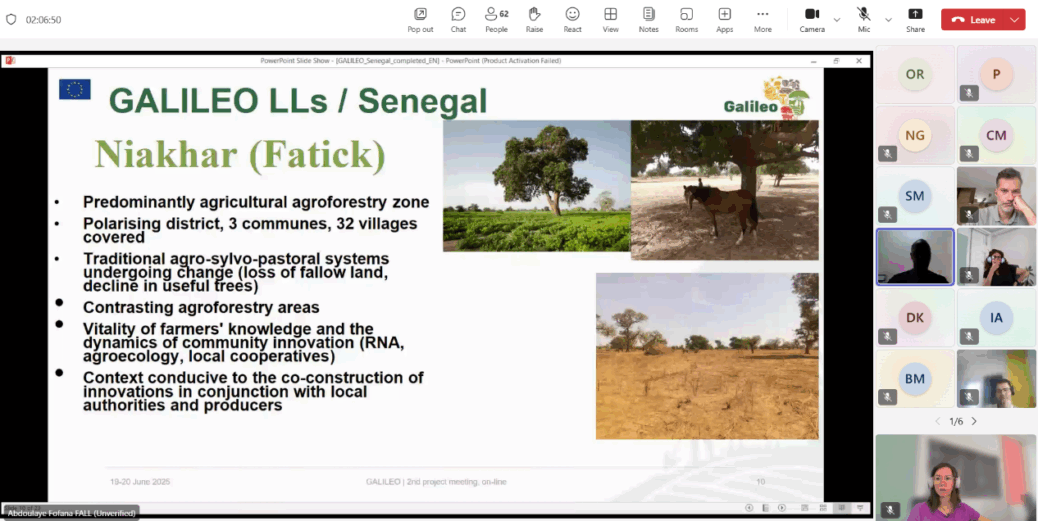GALILEO 2nd project meeting: advancing collaboration for sustainable agroforestry in Africa
The GALILEO project, funded by the European Union’s Horizon Europe programme (Grant Agreement No. 101181623), continues to make strides towards strengthening rural livelihoods and resilience to climate change across Sub-Saharan Africa. On 19–20 June 2025, the consortium consisted both of European and African partners, came together for the 2nd project meeting, being held online, to review progress and coordinate next steps.
The meeting followed a successful kick-off in Dakar, Senegal earlier this year and marks a key milestone in the project’s implementation phase. Over two days, partners presented ongoing work, exchange insights, and planned future activities to co-develop innovative agroforestry practices adapted to local contexts.
The first day focused on the progress of activities in the Living Labs (LLs) in Senegal, Cameroon, Ghana, and Kenya, alongside updates from Work Package (WP1) (co-creation and context-based methodology) and WP5 (household income, carbon farming, and income diversification). The Living Labs shared key findings from interviews and focus groups with local farmers, identifying innovation opportunities, environmental constraints, and institutional challenges. Particular attention was given to gender inclusion and youth engagement in the related GALILEO activities to establish a good knowledge base of the socio-economic context in the focal rural communities.
The second day opened with a keynote speech from the SustainSahel project, offering insights and transferable lessons for GALILEO, including the need to, engage farmers early, and align experiments with community diagnostics, as well as continuous stakeholder feedback. The day then moved through presentations from the remaining work packages, covering selecting and training farmers to test improved agroforestry practices (WP2), launching data collections on climate resilience, soil health, and biodiversity benefits (WP3 and WP4), mapping sites and developing climate adaptation models (WP6), along with our strategy to enhancing communication, visibility, and replication through stakeholder engagement and strategic outreach (WP7).
The meeting concluded with a shared sense of purpose and commitment across all partners. Over the next six months, teams will actively implement the actions discussed, advancing key project milestones. To assess progress and plan the next phase, partners agreed to reconvene in person for the 3rd project meeting, scheduled for early 2026 in Ghana.
For more updates, follow our progress and stay tuned.




